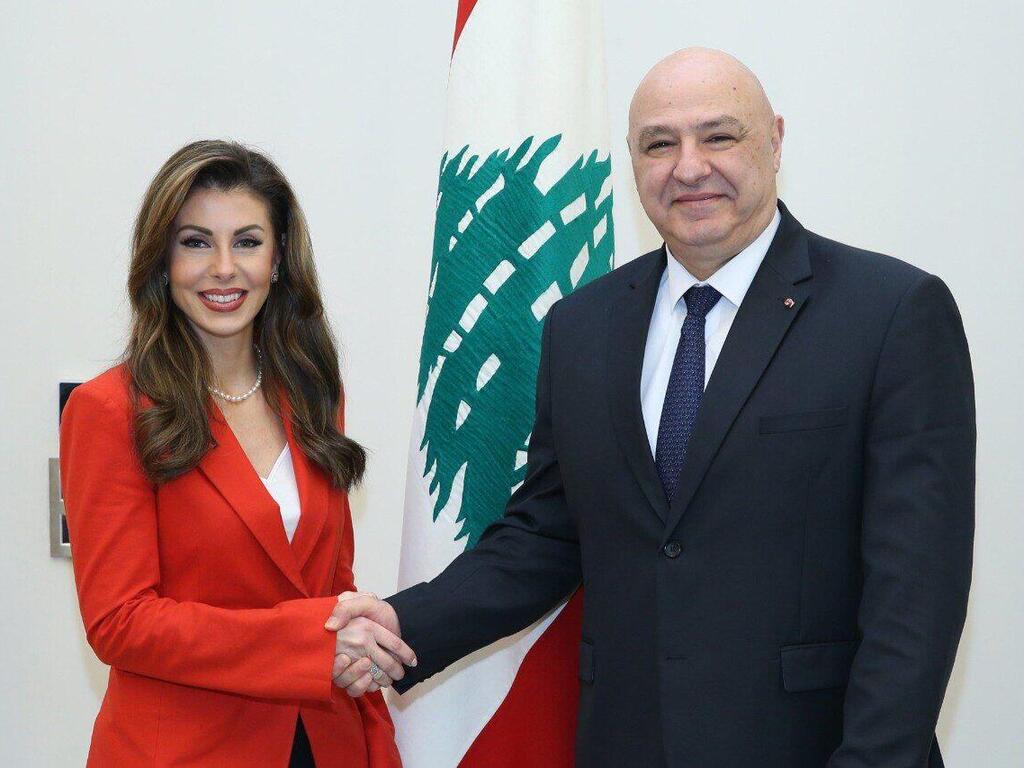Getting your Trinity Audio player ready...
Lebanese President Joseph Aoun found himself in an awkward position during his visit to Paris over the weekend, caught between diplomatic overtures and escalating regional tensions. Just hours after his arrival in the French capital, the U.S. Treasury Department announced sanctions against five Lebanese citizens accused of transferring commercial funds to Hezbollah. Notably, two women were among those named — the first time women have appeared on such a list — allegedly using their import-export companies to finance the Iran-backed group’s activities.
The trip marked Aoun’s first official visit to a Western country since taking office. France reaffirmed its longstanding support for Lebanon and pledged to assist with economic development projects. But soon after came a second setback: Israeli warplanes carried out a significant airstrike in Beirut’s southern Dahieh neighborhood, a Hezbollah stronghold, in what officials described as a response to rocket fire from Lebanese territory.
Israel's attack in Beirut
(Video: Reuters)
Israel said the strike followed the launch of two rockets — one of which landed in open territory in Israel without causing damage, and another that failed to cross the border. Hezbollah denied involvement. Suspicion instead fell on Hamas operatives in Lebanon or other Palestinian terror factions based in Beirut’s refugee camps.
The targeted building was reportedly used to store Hezbollah drones. Hezbollah Deputy Secretary-General Naim Qassem insisted the group was not behind the rocket fire and said Hezbollah remained in a period of “reorganization.” Mohammad Raad, head of Hezbollah’s parliamentary bloc, also reiterated the group’s commitment to the cease-fire agreed to in November.
French President Emmanuel Macron responded at a joint news conference with Aoun, condemning the Israeli airstrike. Macron said he would call U.S. President Donald Trump and Prime Minister Benjamin Netanyahu within hours to express his concerns over Israel’s military actions in Beirut.
However, the U.S. issued a contrasting statement. Morgan Ortagus, deputy U.S. envoy to the Middle East, said the ceasefire had been violated by Lebanon. Regardless of Hezbollah’s denial, she said, the Lebanese government was responsible for curbing terrorist groups operating from its territory. The U.S. was less concerned with which group launched the rockets and more focused on the fact that the fire originated from Lebanon. As such, Ortagus said, Israel had the right to respond.
Aoun, a former army chief, is viewed favorably in Israel due to his military background and longstanding opposition to Hezbollah. Prime Minister Nawaf Salam, on the other hand, is known for his criticism of Israel and is seen as a more problematic figure by Israeli officials. He previously served as a judge at the International Court of Justice in The Hague.
Yet this time, their roles appeared reversed. Aoun took a harder line in his public statements, while Salam struck a more moderate tone, calling the events “a dangerous escalation” and urging authorities to identify the source of the rocket fire. The failure of the rockets to cause damage has led many analysts to conclude that Hezbollah was likely not responsible.
Get the Ynetnews app on your smartphone: Google Play: https://bit.ly/4eJ37pE | Apple App Store: https://bit.ly/3ZL7iNv
Israeli officials believe now is the time to reopen discreet channels of communication with senior Lebanese military leaders. With the ceasefire already partially in place, the next step would be to bring in a mediator to facilitate a trilateral meeting. Stabilizing the situation is in everyone’s interest.
Israel also recognizes the fragility of Aoun’s position amid Lebanon’s deepening economic crisis and Hezbollah’s enduring influence. Should Iran be granted a foothold, it is expected to act quickly. Israeli officials know who the key intermediaries are within Lebanon’s leadership. Now is the time to reach out, meet, and talk. The Lebanese public wants peace.





